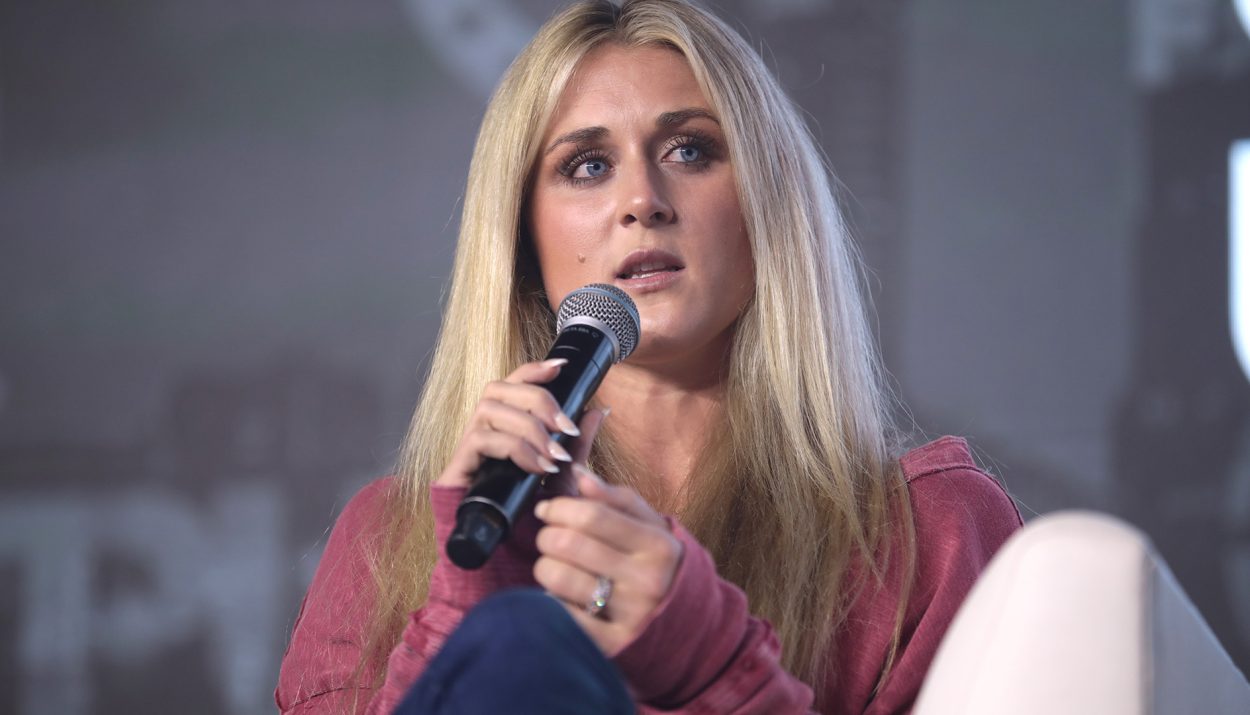Transgender people are currently under attack in America, the source of fodder for an increasingly extreme conservative faction of the country. LGBTQ+ issues are easy talking points for conservatives looking to rile up their base, and in the past few years, they’ve focused solely on transgender individuals as the lowest hanging fruit of gay rights issues.
Some Harm is Minor
Some of the harm towards individuals has focused on microaggressions, such as deadnaming transgender individuals, or using the incorrect pronouns. This is one of the ways that anti-trans activists had found to draw a distinction between “us” and “them” when referring to trans individuals, while causing harm on the way.
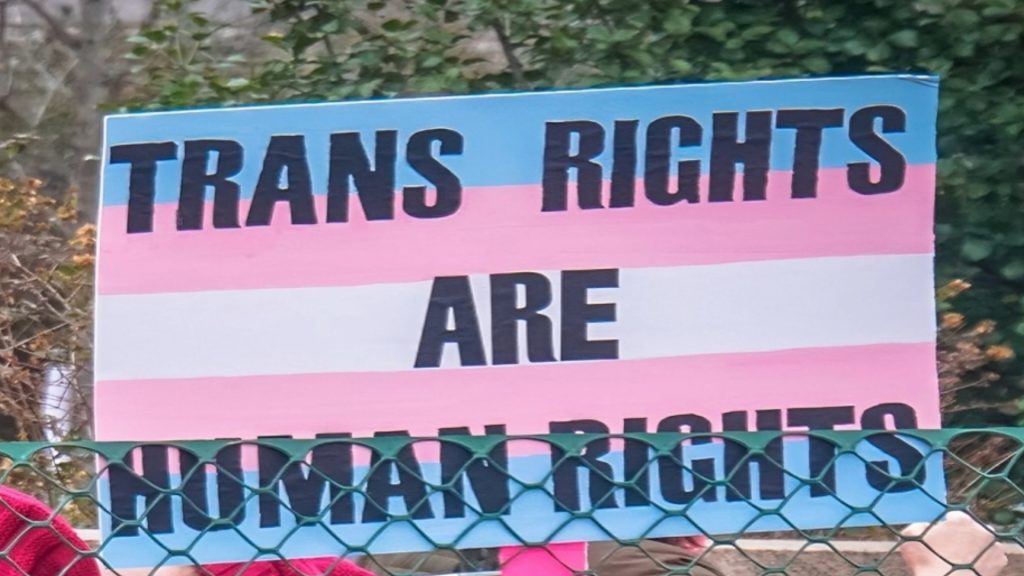
More extreme harm is currently in the works when it comes to trans individuals, though. Legislatures across the country are currently working on passing proposals, amendments, and bills that specifically target trans individuals, in ways that are both small and large.
Florida at the Center of the Conversation
Florida has found itself at the center of much of the conversation surrounding trans rights, largely due to extreme rhetoric on the part of the governor, Ron Desantis, as well as deeply conservative groups such as Moms for Liberty.

Just this last month, Florida’s House of Representatives passed three different anti-trans bills, which could cause significant harm, should they be passed into law, as it seems likely. The bills represent “an agenda of extreme censorship and government intrusion,” according to Equality Florida, an LGBTQ+ advocacy group.
Redefining a Person’s “Biological Sex”
One particularly alarming bill is HB 1639, which would define a person’s “biological sex” based on genitals and presumed chromosomes. This would effectively end any state recognition of transgender identities, and would also require all health insurance providers in the state to cover mental health services that treat gender dysphoria “by affirming the insured’s sex.”
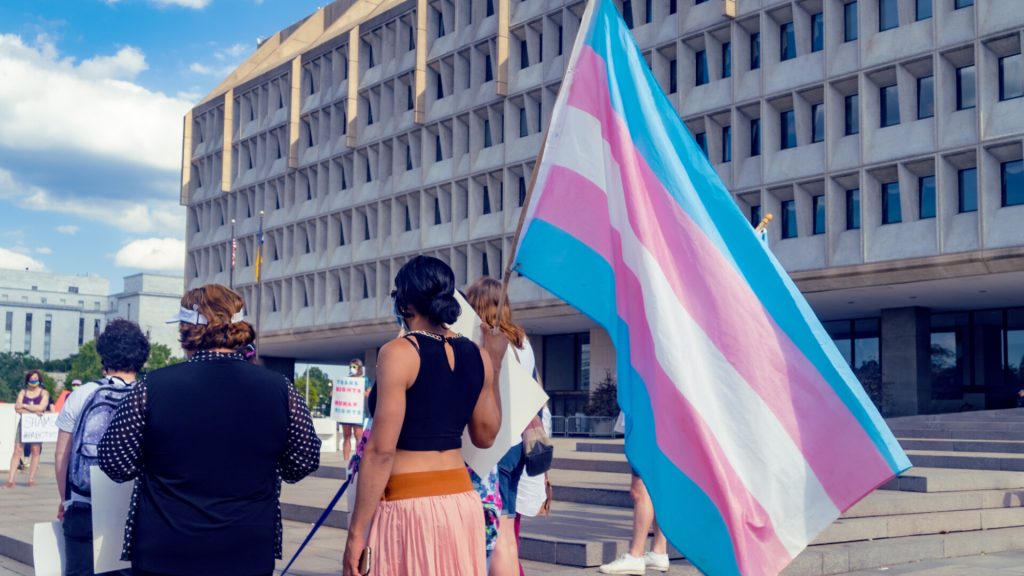
That bill has been stuck in committee, and is expected to remain there indefinitely, but the harm that could come from such a bill cannot be understated. And the most extreme anti-trans bills don’t need to be passed in order to cause significant harm. Harm can be caused by much smaller rules, such as the Florida DMV passing a rule that would disallow individuals from changing their state paperwork to reflect their chosen gender identity.
Targeting Allies as Well
Bills that target people who surround transgender individuals are just as harmful as those that target trans people directly. This can be seen in Missouri, where a particularly insidious bill was brought to the floor which would criminalize the act of teacher’s supporting their student’s social transition.
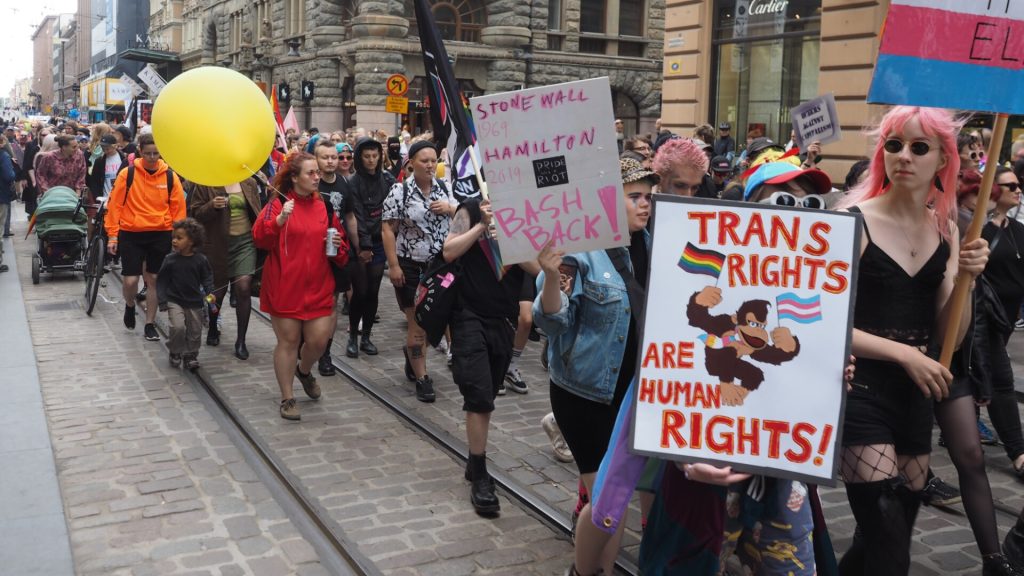
Teachers that provide educational material as well as support for a student’s social gender transition could be subject to a felony charge, as well as a significant fine, all for supporting their students in the way they want to be seen in the world. This creates even fewer safe spaces for transgender minors, subjecting them to further risk for harm.
Other Harmful Bills in Missouri
That bill isn’t the only harmful one that’s recently passed in Missouri. Missouri is currently leading the nation in passing anti-trans legislation, with more than 35 anti-LGBTQ+ bills having been passed in the Missouri House during the current legislative session alone.

Other bills that have been passed in Missouri include one that allows doctors to discriminate in treatment of trans people, one which fully criminalizes gender-affirming care for all transgender individuals, not just minors, and one that inaccurately redefines “sex” in the Missouri Human Rights Act to completely write transgender, nonbinary, and intersex individuals out of the law.
Spreading Harmful, and False, Rhetoric
These bills have been able to be passed, in part, due to the harmful rhetoric surrounding individuals. Conservative groups have used propaganda referring to transgender individuals and the gay community at large as “groomers,” co-opting language used to refer to sexual predators who target children.
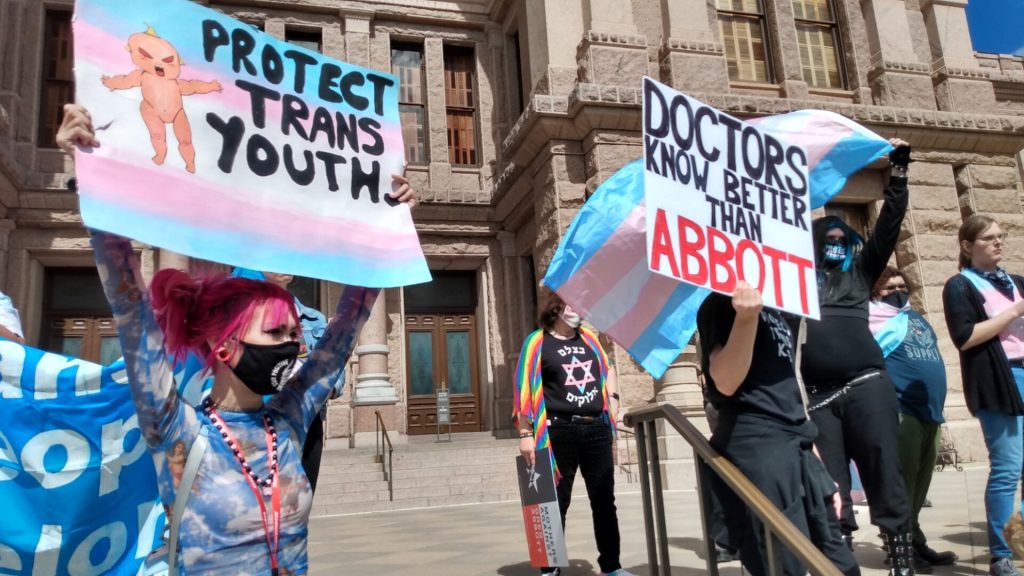
There is, of course, absolutely no data to suggest that transgender individuals target children any more frequently than other types of predators. The language is effective in creating moral outrage and fear in Americans, though, and it has allowed for many of these deeply conservative jurisdictions to push through these extreme bills.
Trans Moral Panic
The moral panic surrounding gay and trans people is insidious, and it’s infiltrated every part of American life and conversation. Even sports are not immune to the conversation around trans people, and there have been bills passed in various states that target transgender people in sports, specifically.
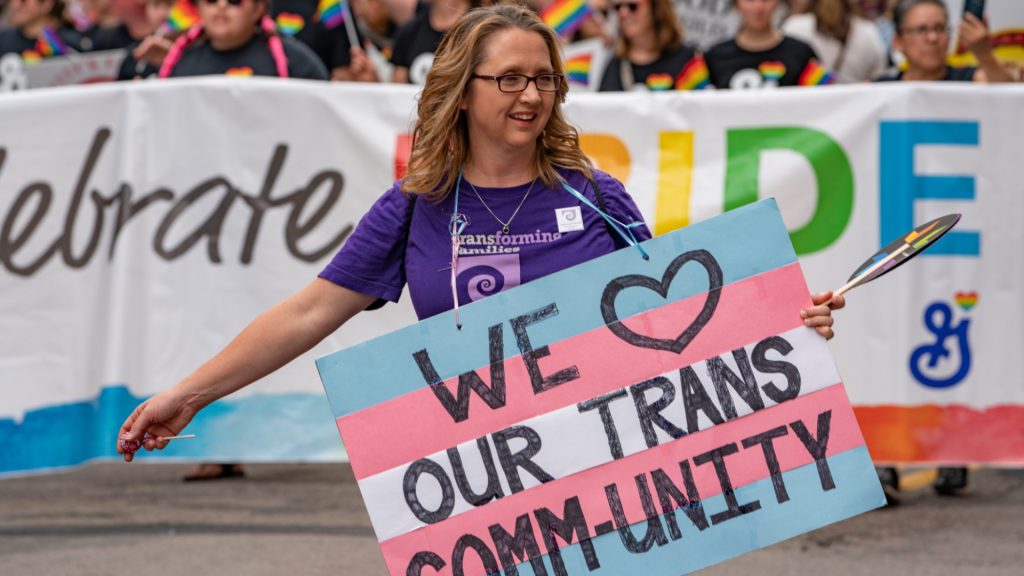
The bills, in particular, focus on the prevalence of transgender women in sports, playing women’s sports. Anti-trans activists have accused trans women of “taking over” women’s sports, and of creating less room for “biological” women when they have to compete against “biological males” for spots on a women’s team.
Targeting Trans People in Sports
Bills have been passed in various states targeting trans people in sports, disallowing them from playing altogether or creating significant barriers to access such as genital examinations in order to play. Disregarding the potential for abuse that this creates, particularly when talking about transgender minors, this is an incredible violation of human rights and is incredibly ostracizing for these children.
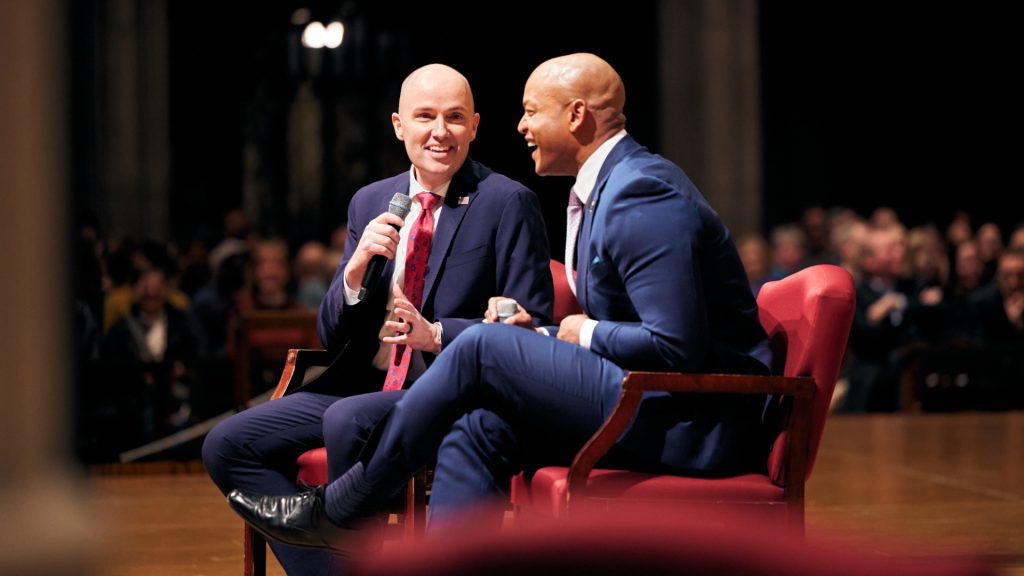
Governor Spencer Cox of Utah, when the state legislature passed a bill disallowing transgender minors from playing sports, even pointed this out. He vetoed the bill, stating that he didn’t want to ostracize and draw attention to the half-dozen transgender students that the bill targeted, and that everyone deserved to feel welcome in their school and in Utah.
Campaigning Against Sports Bills
The veto of the bill was ultimately overrun by the Utah State Legislature, and it went into effect last year. Human rights groups and gay rights organizations have campaigned strongly against the implementation of bills like this one, but the far-right crowd are loud and angry when it comes to trans rights.
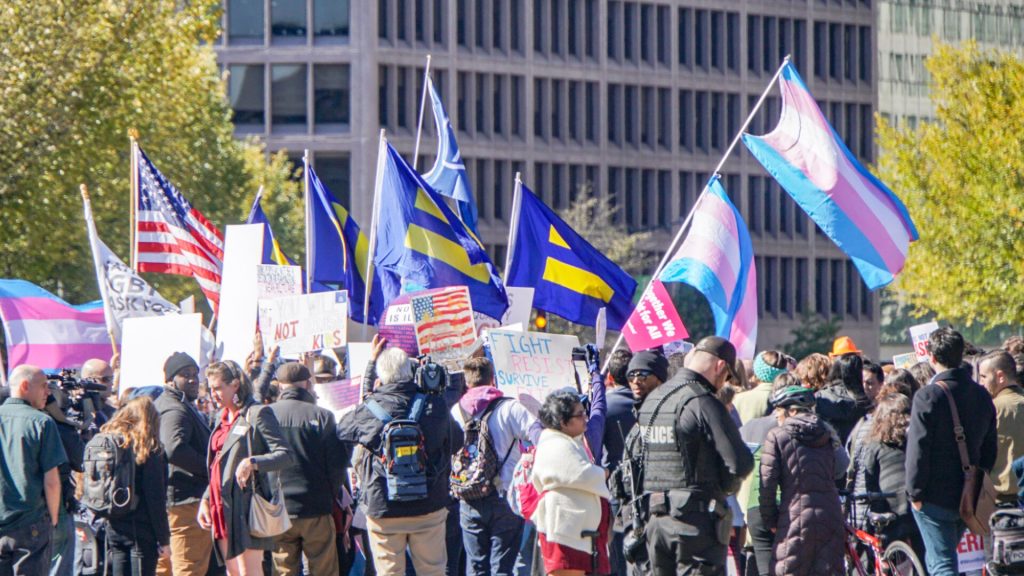
Anti-trans rhetoric has even come from fellow students of transgender individuals themselves. For trans people, this is especially unfortunate because for many, their peers are some of the only support group they have. Finding themselves attacked on all sides, not only from adults but from peers alike, creates an increasingly hostile environment for trans people to navigate.
Causing Real, Everyday Harm
This hostile environment, beyond contributing to the exacerbated mental health issues of trans people, can also cause real harm when it comes to everyday life. This happened recently in Washington State, where a trans student lost their scholarship due to anti-trans bullying on the part of former swimmer Riley Gaines.

A transgender high school student, a volleyball player, recently posted about their scholarship offer to the University of Washington, where she was initially offered multiple scholarships. After consulting with her parents, though, the student chose to take only one scholarship.
Riley Gaines, Competitive Swimmer and Anti-Trans Activist
The student’s problems started in December, though, when Riley Gaines, a prominent anti-trans activist, learned of her scholarship award and outed the athlete in the court of public opinion.
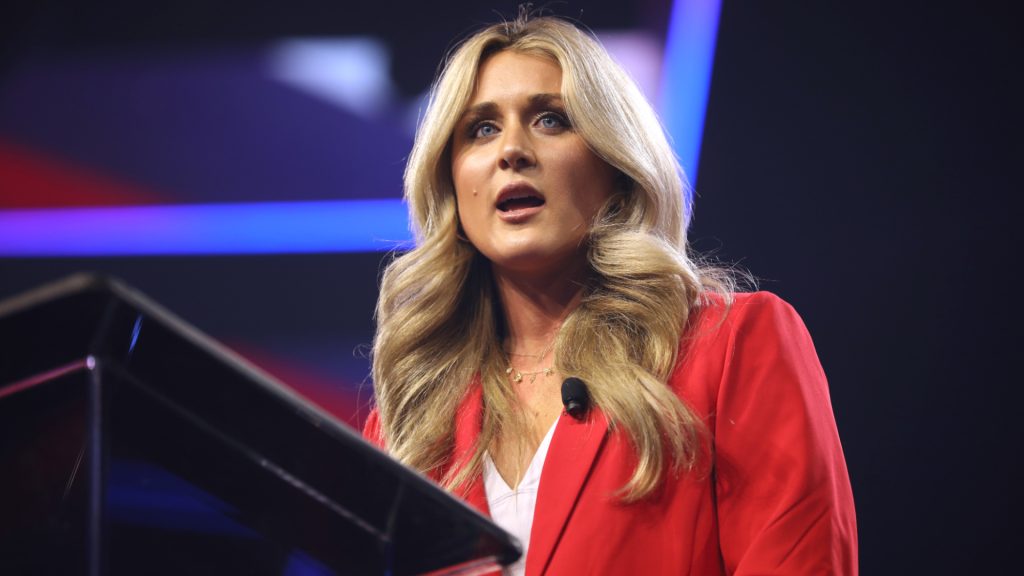
Riley Gaines was a competitive swimmer, who made headlines several years ago when she lost a major competitive medal to a trans athlete. In 2022, Gaines competed against transgender athlete Lia Thomas, where the pair tied for fifth place in the women’s 200-yard freestyle race at a championship meet.
A Class-Action Suit Against the NCAA
Gaines has since made a name for herself as an anti-trans activist in the years since that event. In recent weeks, Gaines has even gone so far to sue the NCAA in a class-action suit with other female athletes who claim that they have been harmed by transgender women in college sports.
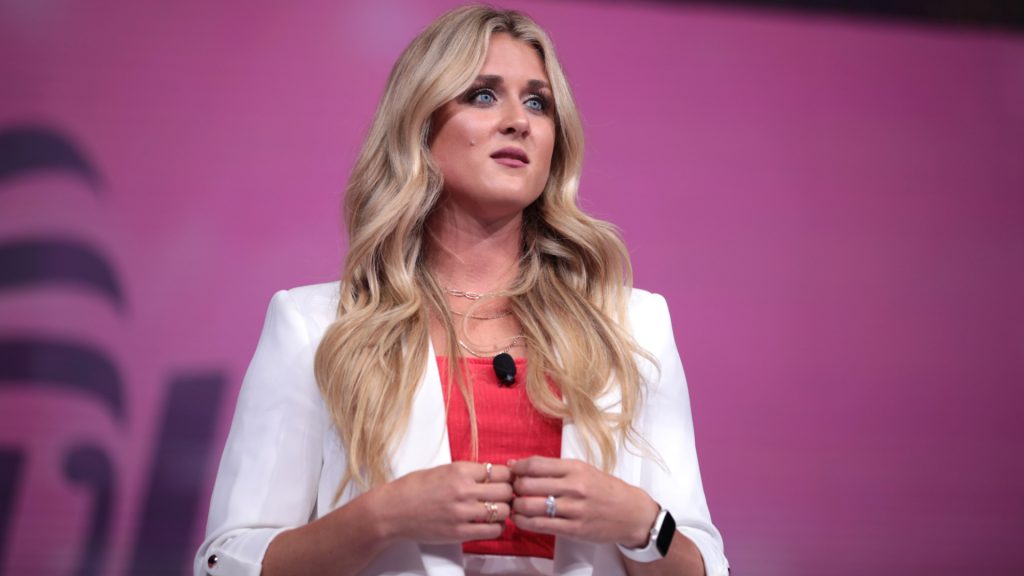
The lawsuit requests that the NCAA revoke any titles that have been won by transgender women in the past, reassigning them to “biological women” who won those events, as well as disallowing transgender women from competing in women’s events moving forward. It’s an extreme lawsuit based entirely in bigotry, but it has garnered significant nationwide support.
Attacking the Transgender Washington Student
This nationwide support is, in part, what allowed Gaines to attack the student in Washington in the way that she did, without any significant consequences.
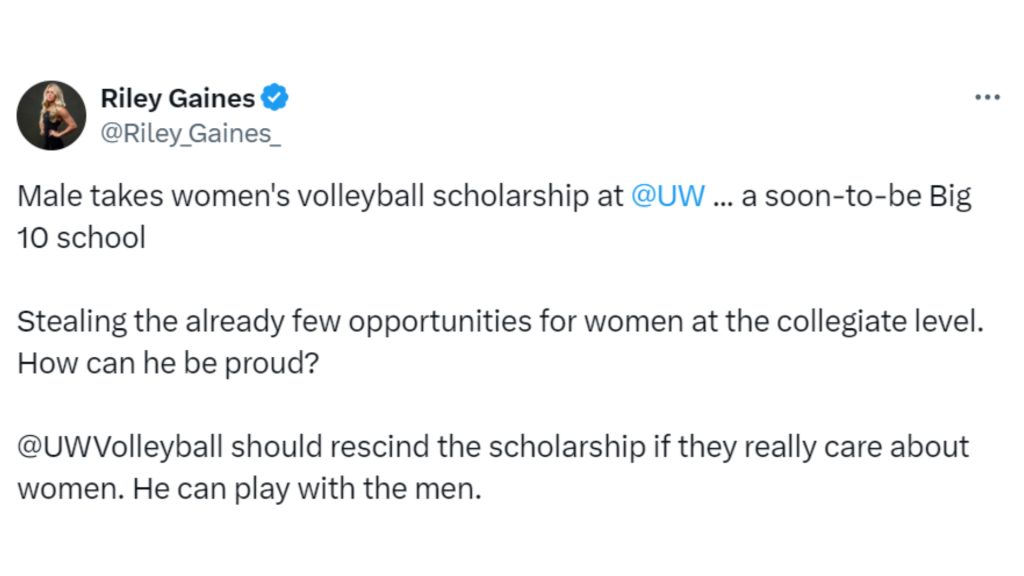
In her post on X, Gaines outed the UW scholarship holder. She wrote “Male takes women’s volleyball scholarship at @US…a soon-to-be Big 10 school. Stealing the already few opportunities for women at the collegiate level. How can he be proud? @UWVolleyball should rescind the scholarship if they really care about women. He can play with men.”
Celebrating the Fruits of Her Labor
Three days later, Gaines returned to X to publicly celebrate the fact that the transgender student lost her scholarship due to Gaines’ wildly transphobic rhetoric. She did not validate the source of this information, though, and coaches involved in the scholarship have since confirmed that they didn’t know that the student was transgender.
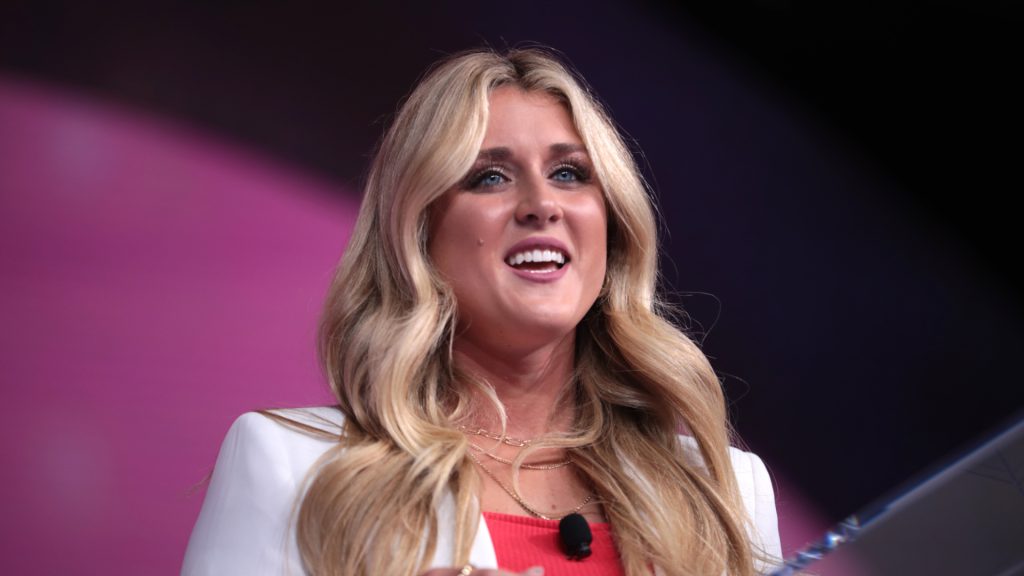
The student’s misfortune didn’t end with the loss of her scholarship, though. The student, still a minor, was also subject to the significant backlash that came from Gaines’ right-wing army of followers. Gaines has 860,000 followers on X, many of whom came to her platform after her nationwide loss that catapulted her into anti-trans activism.
Gaines as a Sore Loser
Many have criticized Gaines for not only being transphobic, but also being a sore loser. Her anti-trans work only began after her tied competition against Lia Thomas, where she criticized fellow female competitive athletes for not seeing anything wrong with trans athletes.
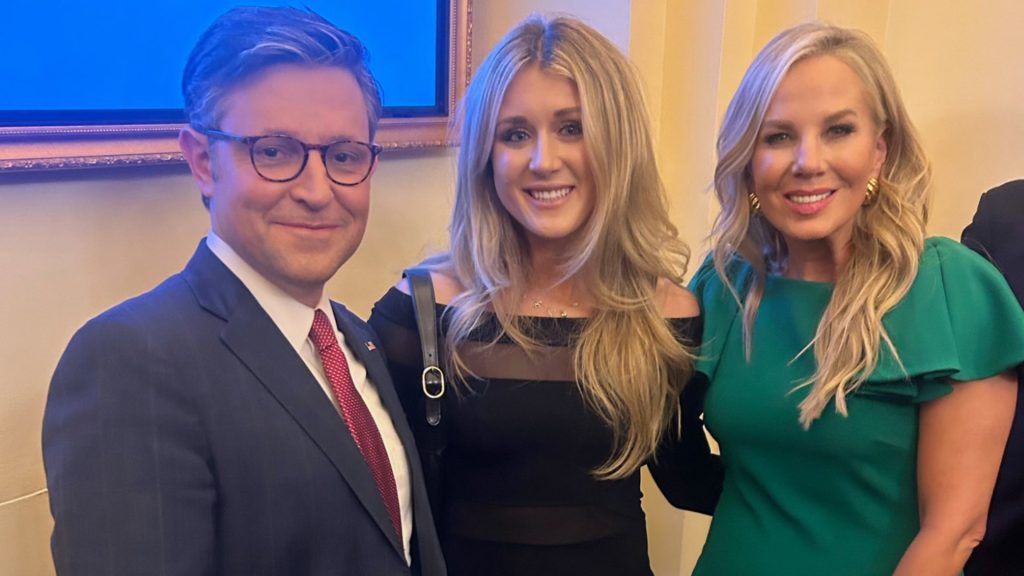
In her “activism,” she claims that she’s merely speaking the obvious truth: “A trans girl is still biologically male.” This has continued through the years, and is showcased in the tweet that outed the trans girl, which repeatedly misgendered her on the public platform.
Activists Speaking Up in Support of the Student
Trans rights organizations and other LGBTQ+ activists have since spoken up on the part of the trans student, though. Leading members of these programs have released statements supporting the girl, and stating that Gaines’ attack on her was deeply unfair.
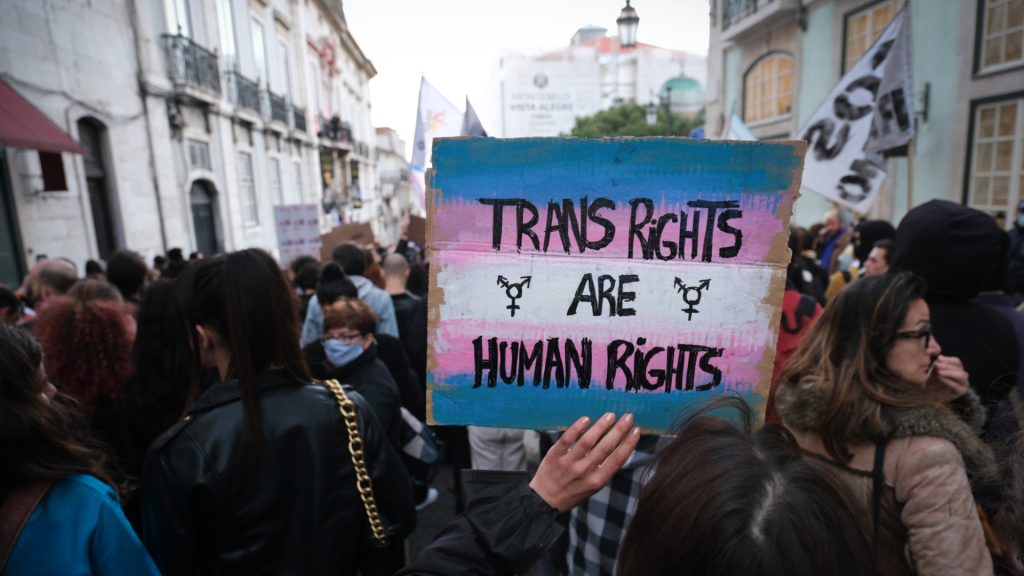
They’ve also clarified that, in this particular case with this particular student, there was no additional advantage that has been gained from the student being assigned male at birth. According to the organizations, she transitioned before puberty, negating any potential biological hormone advantage.
A Blip on Gaines’ Radar
The event, which was life-changing and devastating for the student, was merely a blip on Gaines’ radar in terms of her anti-trans activism. Since this event, she’s proceeded on with the class-action lawsuit against the NCAA mentioned above, and has continued to spout incorrect and bigoted information to her followers online.
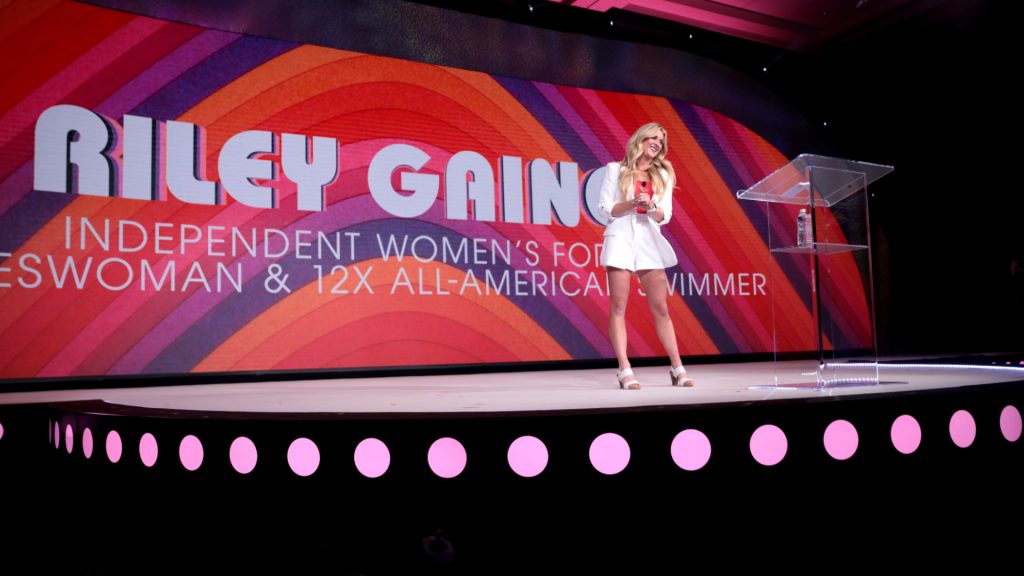
She has become something of a darling to the far-right conservative movement, who have called on her to speak at various events and fundraisers in support of far-right politicians and organizations such as Moms for Liberty.
Trans Protections Need to be Prioritized
It’s deeply unfortunate what happened to the transgender student as a result of Riley Gaines’ hateful rhetoric, but it doesn’t appear that the anti-trans movement is doing anything other than speeding up, and getting more extreme.

Pro-trans activists have their work cut out for them, but in terms of education and in terms of support for adults and minors who are being attacked alike. Codifying trans rights and protections into federal law would be a good first step when it comes to addressing these systemic issues and inequalities, but until the wave of hate is slowed, these necessary protections will, unfortunately, be on hold.

